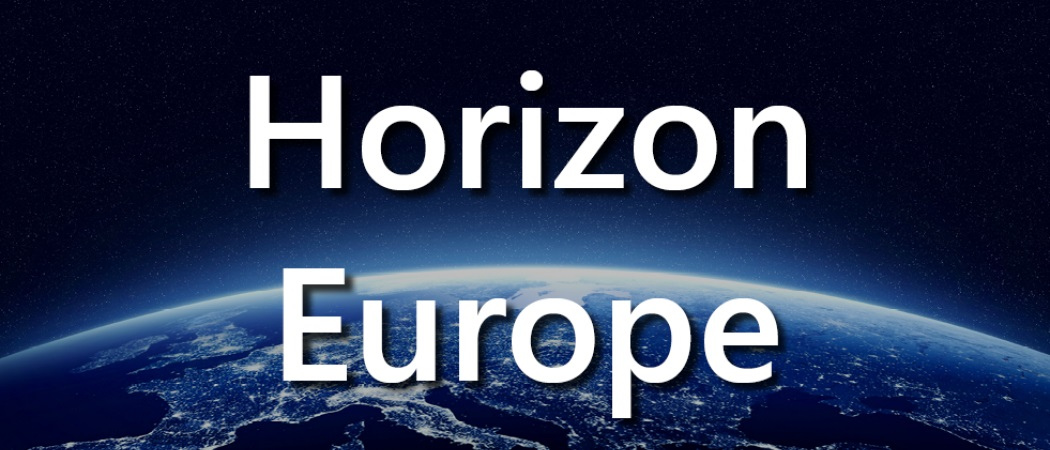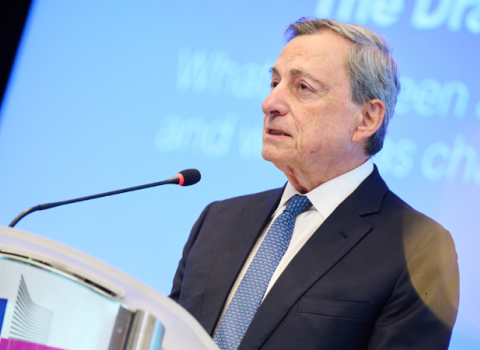Respondents name climate change, energy supply and biodiversity as top priorities for the second half of the EU research programme

Researchers have spoken: the second half of the EU’s €95.5 billion seven-year research framework should put climate change, energy supply and biodiversity loss centre-stage.
Earlier this year, the European Commission ran a three-month consultation on the past, present and future of EU research programmes. The results are in and they have given the EU a clear sign it must prioritise net-zero ambitions in the second half of Horizon Europe, starting in 2025.
Responding to the survey, 90% of respondents rated climate change as one of the top priorities for the next decade, 88% listed energy supply, and almost as many cited biodiversity loss. The results were mirrored in the replies to the question on the priorities for the next three years.
Of course, climate change is one of many challenges the EU is currently facing as it grapples with a new geopolitical status quo. Other top priorities include healthcare, global industrial leadership, preparedness for disruptions and social justice, all of which were listed as high priority by at least half the respondents.
The results of the consultation, announced today, will feed into the strategic plan for the second half of the Horizon Europe research programme and also into the planning for its successor, set to kick off in 2028.
Sky high multiples
Such challenges require huge investment and at €95.5 billion over seven years, the Horizon Europe budget is already stretched to its limits.
For a start, inflation is running at multiple times over the 2% rate forecast in 2020 when the budget was agreed. In addition, money is being diverted to help researchers in Ukraine and to address the energy crisis the war has triggered.
The European Parliament wants EU governments to put more money in. With inflation, war and new countries due to join the EU, “that means that we have restrictions, we have very small or non-existent margins,” Parliament’s rapporteur for the file Janusz Lewandowski said in a debate on Tuesday night. “We are going to have to come to a formal conclusion, we are going to have to have an in-depth revision of the [EU budget].”
Lewandowski listed six priorities for next year’s EU budget: investment in SMEs; research and innovation; energy independence; green and digital transition; strategic sovereignty; and security and effective response to global and geopolitical challenges.
For Horizon Europe and EU industry, extra funding is needed now. Christian Ehler, who spoke on behalf of the Parliament’s industry, research and energy committee, ITRE, said this year is decisive for Europe’s competitiveness and net-zero ambitions, but the EU is not stepping up.
Money is being diverted from one priority to another. Just this week, Ehler complained, funding intended for cybersecurity was redirected to the semiconductor programme, the Chips Act. The Commission, meanwhile, keeps announcing new policy ambitions without having the funds to follow up on them, such as last month’s net-zero industry act, a package of measures intended to rival the US $369 billion Inflation Reduction Act.
“We have to learn that this is a decisive time, and that is a time where we need to invest because that is the only way to trigger private investment,” said Ehler.
For now, the debate continues. Earlier on Wednesday, MEPs voted down the current version of their position on the 2024 budget guidelines, with many objecting to the use of EU money to finance fences and walls at EU borders.
Doing better
Beyond money to fund all this research, the EU needs Horizon Europe to run like a well-oiled machine, and the consultation provided a few ideas on how things could be improved.
The good news is that a lot of it runs well. Most are happy with the six main Horizon Europe clusters that address digital, green and health challenges under Pillar II of the programme. When it comes to health, culture and bioeconomy clusters, more than 60% said EU support was highly effective. The number goes above 70% for security, digital and climate.
The broad sweep Missions, which are intended to tackle challenges such as combatting cancer and restoring the health of Europe’s soils, seem to have fewer fans, with many noting they are still confused as to what they do and how to join them.
To improve the programme, many respondents believe different parts of Horizon Europe should work better together, with around half the respondents asking for more synergies between different clusters of big collaborative projects. This is especially true for projects in the intersection of health and bioeconomy and climate and bioeconomy.
Horizon Europe should also work better with other EU funding programmes, such as Digital Europe, Erasmus+ education programme, the LIFE Programme for Environment and Climate Action, regional funds, and EU4Health.
The respondents singled out struggling to navigate the complex programme landscape, confusing rules and possibilities on benefiting from multiple funds and differing timing for different programmes as the main hurdles to taking advantage of opportunities.
Overall, most were generally happy with the big scale programming of Horizon Europe in the first strategic plan. But around 70% want the EU to do better when it comes to international cooperation and key enabling technologies. Almost two thirds of respondents also see room for improvement in the dissemination and exploitation of Horizon results.





 A unique international forum for public research organisations and companies to connect their external engagement with strategic interests around their R&D system.
A unique international forum for public research organisations and companies to connect their external engagement with strategic interests around their R&D system.